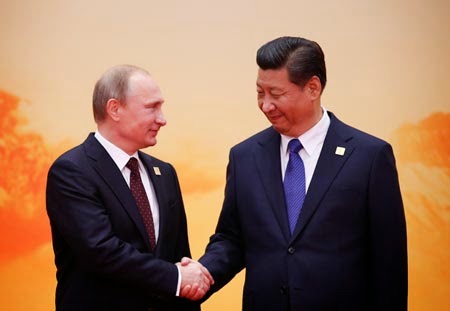Move by
church’s £9bn fund to divest £12m from tar sands oil and thermal coal reflects
more interventionist stance and sets lead for other institutional investors
The Guardian, Adam Vaughan, Thursday 30 April 2015
The Church
of England has pulled its money out of two of the most polluting fossil fuels
as part of what it called its moral responsibility to protect the world’s poor
from the impact of global warming.
In a move
approved by the church’s board on Thursday, it divested £12m from tar sands oil
and thermal coal – the first time it has ever imposed investment restrictions
because of climate change.
The
church’s huge £9bn investment fund and leadership on climate change has made it
the target of a global campaign calling for organisations to divest from fossil fuel companies. Campaigners hailed the move, which they said in effect “read
the last rites” to the two industries.
“This
policy is sending a very clear signal about the church’s investments,” said
Edward Mason, head of responsible investment for the Church Commissioners.
“[This] is a really comprehensive policy, which aspires to put the church at
the forefront of institutional investors, highlighting the urgency of the
transition to a low-carbon economy and playing our part as investors in that.”
The CoE’s
climate-change policy has been in place since 2008 but the new policy, the
result of a two-year review, marks a much bolder and more interventionist
stance by the church.
It has now
divested and ruled out future investments in any company that makes more than
10% of its revenues from thermal coal – used for electricity generation – and
oil from the tar sands. One leading climate scientist, Prof James Hansen, has warned that it would be “game over” for efforts to stop dangerous global
warming if Canada’s tar sands, the world’s third biggest oil reserve, are fully
exploited.
The church
argued that it had not been minded to divest from all fossil fuels as some
campaigners had wanted, because engagement with some oil and gas companies
produced results, such as the adoption of a church-led resolution on climate change by BP at its annual meeting earlier this month.
“Companies
like the oil and gas majors are significant players in the business world and
political world, and we’d like them to be part of a constructive call for the
transition to the low-carbon economy,” said Mason. The church has about £101m
invested in Shell and £91.9m in BP.
But the
church made clear that it would divest when engagement did not work.
“Engagement
is something that we will be looking to demonstrate success. If engagement with
companies isn’t productive, the policy does make clear divestment is there as a
last resort,” Mason said.
Rev Canon
Prof Richard Burridge, deputy chair of the ethical investment advisory group
that undertook the review, said: “The church has a moral responsibility to
speak and act on both environmental stewardship and justice for the world’s
poor who are most vulnerable to climate change.”
Christine
Allen, director of policy and public affairs at the development charity
Christian Aid, said she welcomed the move but hoped the church would address
its investments in other fossil fuels in the future. “The Church of England has
effectively read the last rites to the coal and tar sands industry. The message
must be heard loud and clear: they have no place in a sustainable future, and
ultimately other fossil fuels don’t either,” she said.
Bill
McKibben, a prominent environmentalist who has previously chastised the CoE for
dragging its feet and not heeding calls by the Anglican archbishop emeritus Desmond Tutu that organisations divest, applauded the new policy.
“This is
the first great turnaround in the divestment fight, an institution which
initially refused to move and then, in good Christian fashion, saw the light.
“Much
credit to the CoE – they’re studying the signs of the times, as the good book
says, and starting to show their concern for the poorest and most vulnerable
parts of humanity and of creation,” he said.
The
Guardian is currently running its own climate change campaign, calling on the
Wellcome Trust and the Bill and Melinda Gates Foundation to divest from fossil
fuels.






























